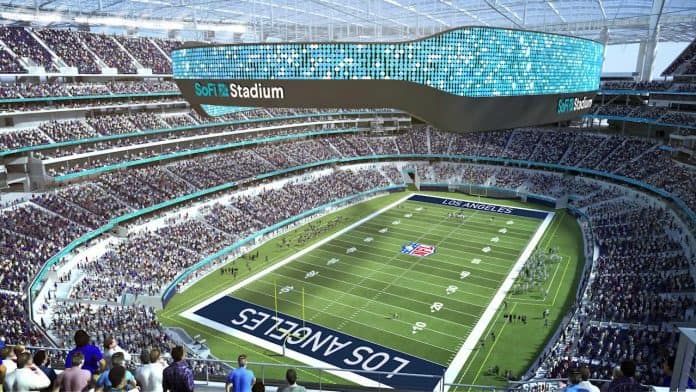Major League Baseball’s problems with COVID-19 during the first week of their shortened season have grabbed most of the headlines recently. With the NFL canceling preseason games and players (highlighted by New England Patriot defenders Dont’a Hightower and Patrick Chung, as well as Kansas City RB Damien Williams) starting to opt-out of the 2020 NFL season, fans are rightly worried about the same issues facing football when the regular season is slated to begin in September.
This attempt to come up with a solution was kickstarted by a tweet from my Against the Spread co-host Christopher Smith. His idea was to create four hubs, scrap the 16-game schedule, and have the teams in each hub play the other seven twice. And he was on the right track, but my idea is different and potentially less radical.
NFL Bubble:
East – Pats, Jets, Giants, Bills, Ravens, Eagles, Wash., Pitt.
North – Minn., Packers, Lions, Bears, Browns, Cinci, Colts, Chiefs
South – Tenn, N.O., Miami, Jags, Bucs, Panthers, Falcons, Texans
West – S.F., Seattle, ARZ, Dallas, Raiders, Rams, Chargers, DEN pic.twitter.com/6ZFmwtj33N— Mr. Smith 👑 (@ChrisSmithPFN) July 27, 2020
It’s based on what the Australian Football League (Australian rules) is doing to get through their season. They have hubs with four or six teams in them, and each team plays each other over several weekends. Four teams in eight NFL hub cities make the most sense.
What cities make sense for NFL hubs?
The stadiums in these NFL hub cities will have to be field-turf or artificial turf to be able to play two games per weekend. Minnesota, Dallas, Los Angeles, Detroit, Atlanta, Houston, Seattle, New Orleans, and if you wanted another team in the Eastern time zone, either the Meadowlands in New Jersey or Gillette Stadium in Foxborough (with the hub in Boston) make sense.
If there is no college football, then games could be on a Saturday/Sunday or a Sunday/Monday schedule. And with no fans in the stands, the games can be scheduled at whatever time is best to benefit television partners.
How the hubs will work
The four teams in one hub would all play each other over a three-week span before moving on to another hub. Each of the teams will have their own hotel that will function as a hub, similar to what the AFL is doing. The hotels will have space and would be grateful for the business.
Additionally, because there will likely be no fans, the NFL can go to a 15-game schedule with two bye weeks so that each team will be able to go home and see their families at least twice during the season.
Also, while the opponents for each team can remain the same, the schedule will have to be rolled out three weeks at a time as opposed to having a set schedule for the whole season. This will ensure that the travel from hub to hub is fair for each team and make it easier to program the bye weeks at the most opportune time for teams.
Why this plan is the right one
The biggest hurdles are the testing protocols and procedures to fight the spread of the virus. The National Basketball Association’s model is definitely the best procedure to follow for this.
Regular testing is possible because tests that can yield a quick positive or negative are now mass-produced. With only one game per week, multiple tests for each player can be done to make sure that false positives don’t cause chaos for teams.
We don’t really know what, if any, discussions the NFL has had with the Players Association or amongst themselves on plans to play these games and combat the virus. But the keys to getting games played without outbreaks are clear.
First, limiting the amount of travel that teams must do between cities. It will be far easier to enforce protocols and limit any risk of exposure to the virus by not going from one city to another every week. The second key is to limit the players’ movements outside the hub once they settle in.
These two principles are why the AFL, National Hockey League, and NBA as well as soccer leagues in Europe were able to restart and play games without outbreaks. It is also why Major League Baseball hasn’t even played a week and is already facing an outbreak. A plan for NFL hub cities is the best way to avoid the problems baseball faces while addressing the concerns of players who may be considering exercising their right to opt-out of the 2020 season.

